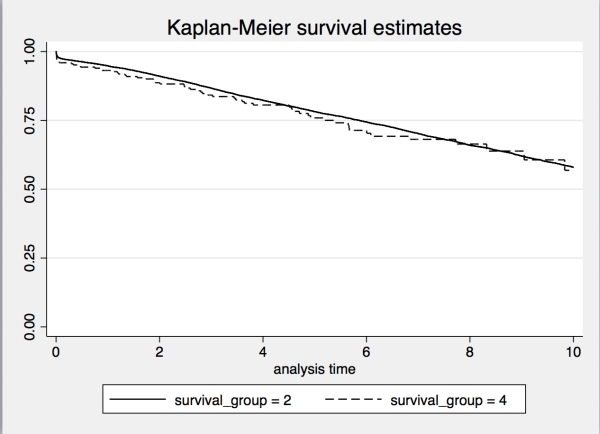Are Donation after Cardiac Death (DCD) Kidneys Unsuitable for Pediatric Recipients?
1Surgery, UT Southwestern Medical Center, Dallas, TX
2Medicine, UT Southwestern Medical Center, Dallas, TX.
Meeting: 2018 American Transplant Congress
Abstract number: 233
Keywords: Donors, Kidney transplantation, non-heart-beating, Outcome
Session Information
Session Name: Concurrent Session: Kidney: Pediatrics - 2
Session Type: Concurrent Session
Date: Monday, June 4, 2018
Session Time: 2:30pm-4:00pm
 Presentation Time: 2:42pm-2:54pm
Presentation Time: 2:42pm-2:54pm
Location: Room 3AB
Introduction: Despite the fact that the number of pediatric patients listed for kidney transplantation far exceeds the supply of deceased donor kidneys, there is a reluctance to use DCD kidneys for a multiple of reasons, including the risk of delayed graft function. We investigated allograft survival in pediatric kidney transplant recipients who received a DCD allograft.
Methods: The United Network for Organ Sharing database was queried to examine outcomes in all kidney transplant recipients from 1996 to 2017. Patients were divided into adult vs. pediatric (<18 years) status and donation after brainstem death (DBD) vs. DCD allograft status. Donor and recipient demographic data were examined, and allograft survival was calculated. Kaplan Meier survival curves were generated. Categorical differences were compared using the unpaired Student's t-test and nominal variables using either the Chi Square or Fisher's exact test. A p-value of <0.05 was considered significant.
Results: 272 pediatric kidney transplant recipients received a DCD allograft. The donors in the DBD group were older than those in the DCD group (28.2 vs. 21.6 years) with a lower KDPI (23% vs. 26%). In the DBD group, the average age at transplant was younger (10.6 vs. 12.9 years); PRA was lower (9% vs. 12%); cold storage time was shorter (9.7 vs. 15.2 hours); mean length of stay was longer (13.2 vs. 10.6 days); and the rate of rejection was higher (18.8% vs. 17.3%). There was no significant difference in allograft survival between the two groups.
 Group 2 represents pediatric DBD recipients, while Group 4 pediatric DCD recipients.
Group 2 represents pediatric DBD recipients, while Group 4 pediatric DCD recipients.
Conclusion: There is no difference in allograft survival in pediatric kidney transplant recipients who receive a DCD kidney allograft. DCD kidney allograft use should be considered in pediatric patients to expand the donor pool.
CITATION INFORMATION: MacConmara M., Levea S., Hwang C. Are Donation after Cardiac Death (DCD) Kidneys Unsuitable for Pediatric Recipients? Am J Transplant. 2017;17 (suppl 3).
To cite this abstract in AMA style:
MacConmara M, Levea S, Hwang C. Are Donation after Cardiac Death (DCD) Kidneys Unsuitable for Pediatric Recipients? [abstract]. https://atcmeetingabstracts.com/abstract/are-donation-after-cardiac-death-dcd-kidneys-unsuitable-for-pediatric-recipients/. Accessed February 24, 2026.« Back to 2018 American Transplant Congress
